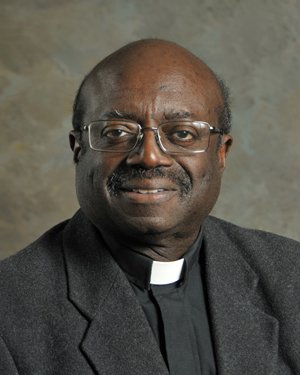My formation initially began at home with my parents. More formal religious education was nurtured at Lutheran Church of the Epiphany in Brooklyn, New York. I can remember a number of my Sunday school teachers, although not formally trained, were dedicated to the task of passing on the faith tradition to us youngsters. While in college I taught the eighth grade Sunday school class.
My undergraduate years at Hunter College in New York were intellectually and theologically exciting. Through campus ministry, I was active in the Lutheran Club, the Ecumenical Association, and the “Extended Seminar” where we discussed issues with local and visiting theologians and other scholars on race, civil rights, Viet Nam War and gender, etc., through a theological lens. I developed a global perspective through participation in a World Council of Churches work camp in a Cistercian monastery in Brittany, France. During the evenings we discussed various theological topics. In my senior year, I made the decision to enter the Lutheran Theological Seminary at Gettysburg for the M.Div. program to become a Lutheran parish pastor.
My internship (vicarage) on St. Croix, U.S. Virgin Islands provided expanded work in religious education. I helped to redesign the educational ministry at Lord God of Sabaoth Lutheran Church. It was the first time that I was involved in curriculum development from kindergarten through grade 8. In addition, I taught the eighth grade catechetics’ course. During my senior year of seminary, I had numerous conversations with Dr. A. Roger Gobbel who was the professor of Christian Education. He always raised powerful educational questions for me to tackle.
Upon graduation in 1973, I was ordained and called to be co-pastor to the four Lutheran Churches on St. Croix, U.S. Virgin Islands. One of my responsibilities was coordinating the education programs in the four churches. When one lives on an island, one becomes acutely aware of cultural identity. I began to investigate Christian education materials from the Caribbean Council of Churches as an alternative to the U.S. mainland curriculum which had little connections with people in the Caribbean. Religious education and the religious educator must take into account context.
I was called to Advent Lutheran Church in Cleveland, Ohio in 1975.The Christian education program left a lot to be desired. Frustrated by my experience, I felt that I needed to hone my skills in this area of ministry. Fortunately, I was able to enroll in the new Master’s Program in Religious Education at John Carroll (Jesuit) University. I was introduced to the work of John Westerhoff and Thomas Groome. My studies helped me to connect the Christian tradition of the past with the present realities. I completed the program in 1981. My advisor, Ray Noll (the director of the program) encouraged me to consider doctoral studies.
My doctoral work at the University of Akron (1984-1989), helped to sharpen my perspectives in the field. Although a public institution my “doktor fater” Dr. Stephen Thompson was supportive of my interest in religious education having advised Michael Pennock. Although initially interested in curriculum development, my interest shifted toward historical perspectives in religious education. My dissertation combined my interest in Lutheran parochial education and curriculum history. In 1987, while writing the dissertation, I was called to the faculty at the Lutheran Theological Seminary at Gettysburg as Assistant Professor of Christian Education and Director of Continuing Education. I worked with A. Roger Gobbel and helped to introduce new courses into the Master’s degree in Christian Education.
My years on the faculty (1987-2013) were exhilarating. I was especially strengthened by collaboration with my Lutheran seminary faculty colleagues. We met each year at APRRE and then at REA. Our joint projects produced four texts. My global interests were enhanced through writing and research in the field through the Conference of International Black Lutherans and the Lutheran World Federation. At present, my research interest and writing center on religious educational biography in the African American community.
